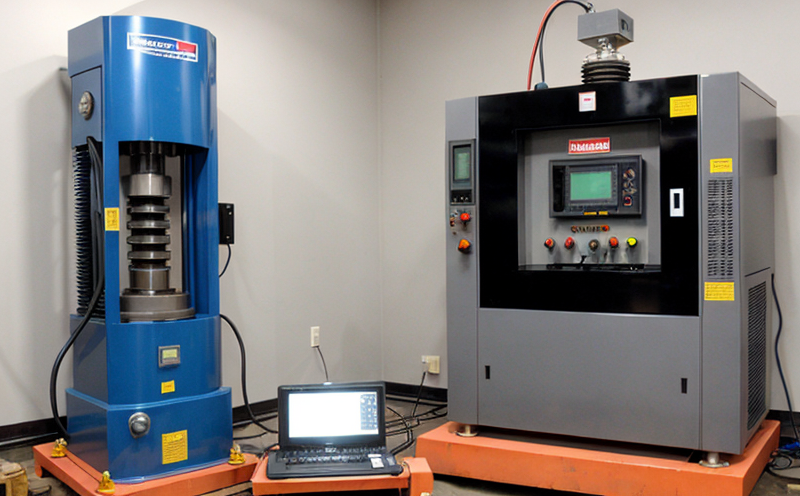JIS C 60068 Vibration Test for Electronic Equipment in Japan
The JIS C 60068 vibration test is an essential component of quality assurance and compliance processes for electronic equipment manufacturers operating within the Japanese market. This standard ensures that products are robust enough to withstand environmental stresses, thereby enhancing their reliability and longevity.
The JIS C 60068 test evaluates how electronic devices perform under specified conditions of mechanical shock and vibration. These tests simulate real-world scenarios where equipment might experience significant external forces during transport or use. By subjecting products to controlled levels of vibration, manufacturers can identify potential weaknesses early in the design phase, allowing for improvements before mass production.
The test procedure involves placing a sample on a shaker table that oscillates at specific frequencies and amplitudes. The duration of each cycle varies based on the type of product being tested. After exposure to these conditions, engineers assess various factors including performance metrics, structural integrity, and electrical characteristics.
Compliance with this standard is crucial for several reasons. Firstly, it helps maintain high standards of quality control within manufacturing processes. Secondly, adherence ensures that products meet regulatory requirements set forth by governing bodies like the Japanese Industrial Standards Committee (JISC). Lastly, successful completion of these tests can enhance brand reputation among consumers who prioritize reliability and durability when purchasing electronic goods.
Understanding the nuances behind JIS C 60068 is vital for any company involved in designing or producing electronic equipment intended for sale within Japan. Proper implementation not only guarantees compliance but also contributes positively towards achieving long-term business objectives related to customer satisfaction and operational efficiency.
Why It Matters
The importance of JIS C 60068 cannot be overstated when it comes to protecting electronic equipment from potential damage caused by mechanical shocks and vibrations. These forces can occur during various stages of a product's lifecycle, including manufacturing, packaging, transportation, installation, and even routine usage.
- Manufacturing Stage: During assembly, components may be subject to rough handling which could lead to internal stresses or surface scratches. Ensuring that prototypes pass JIS C 60068 helps identify such issues early on so they can be addressed immediately.
- Packaging and Transportation: Packaging materials need to provide adequate protection against external shockwaves generated during shipping or storage. A well-designed box will minimize the risk of internal damage due to jostling around inside.
- Installation: Once delivered, electronic devices must be placed correctly in their intended locations without experiencing excessive vibrations. Proper installation practices are critical for maintaining optimal performance levels throughout the device's operational life span.
In summary, compliance with JIS C 60068 ensures that manufacturers produce reliable and durable products capable of enduring harsh environmental conditions. This ultimately leads to increased customer satisfaction while fostering trust between companies and their end users.
Benefits
The benefits of conducting JIS C 60068 vibration tests extend beyond mere compliance; they offer significant advantages in terms of product quality, reputation enhancement, cost savings, and competitive positioning. Here are some key aspects:
- Promotes Quality Assurance: By identifying any defects early during the development stage, companies can eliminate costly reworks later down the line.
- Enhances Reputation: Passing such stringent tests demonstrates a commitment to excellence and builds confidence among consumers about purchasing from reputable brands.
- Saves Costs: Early detection of flaws reduces warranty claims and returns, thereby lowering overall maintenance expenses.
- Increases Competitive Edge: Superiorly performing products gain market share over competitors whose offerings fall short on reliability standards.
Achieving JIS C 60068 certification also opens up opportunities for international trade by meeting global quality benchmarks. This is particularly relevant given Japan's position as one of the world's largest economies and its strong influence in technology sectors.





